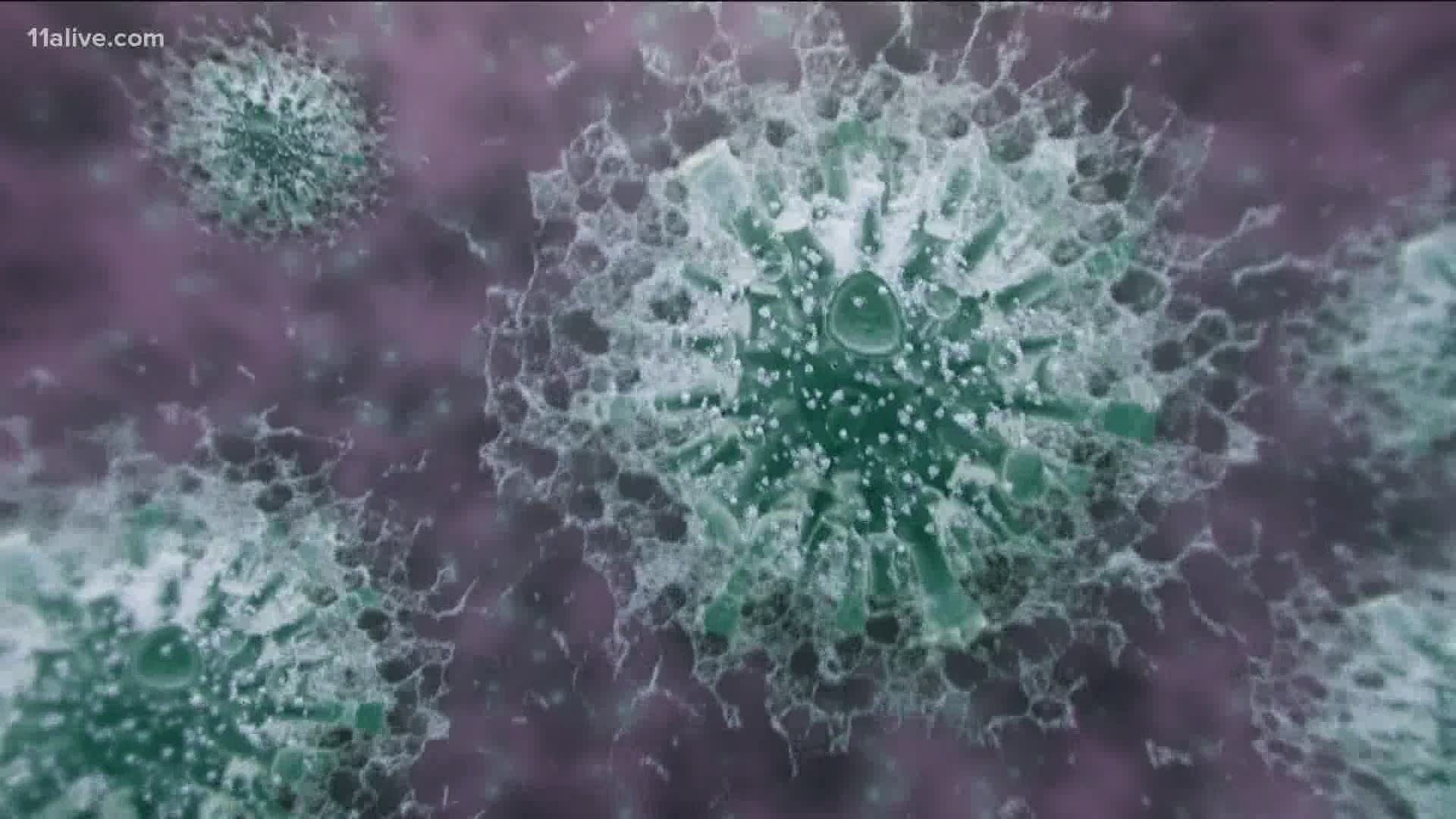ATLANTA — So far, two mRNA vaccines for the treatment of COVID-19 have been approved and administered across the US, by Moderna and Pfizer. But on the horizon is Johnson & Johnson's vaccine, which Dr. Phillip Santangelo, a professor of biomedical engineering at Georgia Tech and Emory Univesity, said is entirely different.
"They use an actual virus, an adenovirus ... they took a version that’s really very mellow -- not going to make anyone sick -- and they basically engineered it so it expresses that spikes protein from COVID," said Santangelo.
Santangelo said this adenovirus platform has its advantages, like not having to be stored in a deep freeze and only requiring one dose.
"They were able to get the immune response they needed with just one. The reason why Moderna and Pfizer needed two doses is because the immune response wasn't high enough (with one)," said Santangelo.
This vaccine could be safer for those at risk for anaphylaxis. That's because it does not have the ingredients like lipids and polyethylene glycol that are in the mRNA vaccines that could cause allergic reactions.
But there is concern over its effectiveness. Trials show the mRNA vaccines to be more effective -- over 90%.
The Johnson and Johnson vaccine is at 66% globally and 72% in the United States.
Santangelo said news of new strains from the U.K. and South Africa does cause concern, mostly because they're more contagious. He predicts vaccines will also change to combat them more effectively.
"It's very easy to make those changes," he said. "These viruses have been sequenced; once you have the sequence, it's very trivial to make those changes in an mRNA or adeno construct."
But due to variants, we may need to take the vaccine more often.
"I think if not yearly, then every couple of years, a new coronavirus vaccine," Santangelo said. "I can see that happening."
Overall, Santangelo said what we need to know now, is that getting a vaccine -- any COVID vaccine -- as soon as you can, is your safest bet.
"I think waiting is a terrible idea," he said. "If I could get a vaccine tomorrow, I would."

